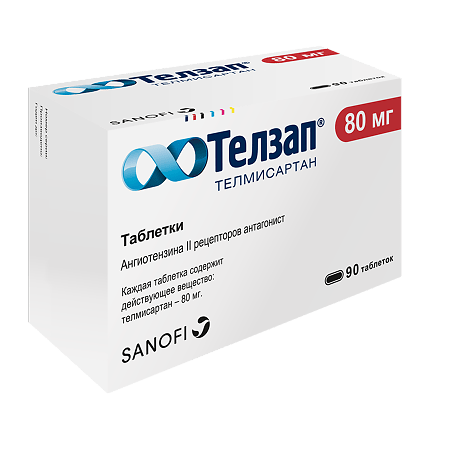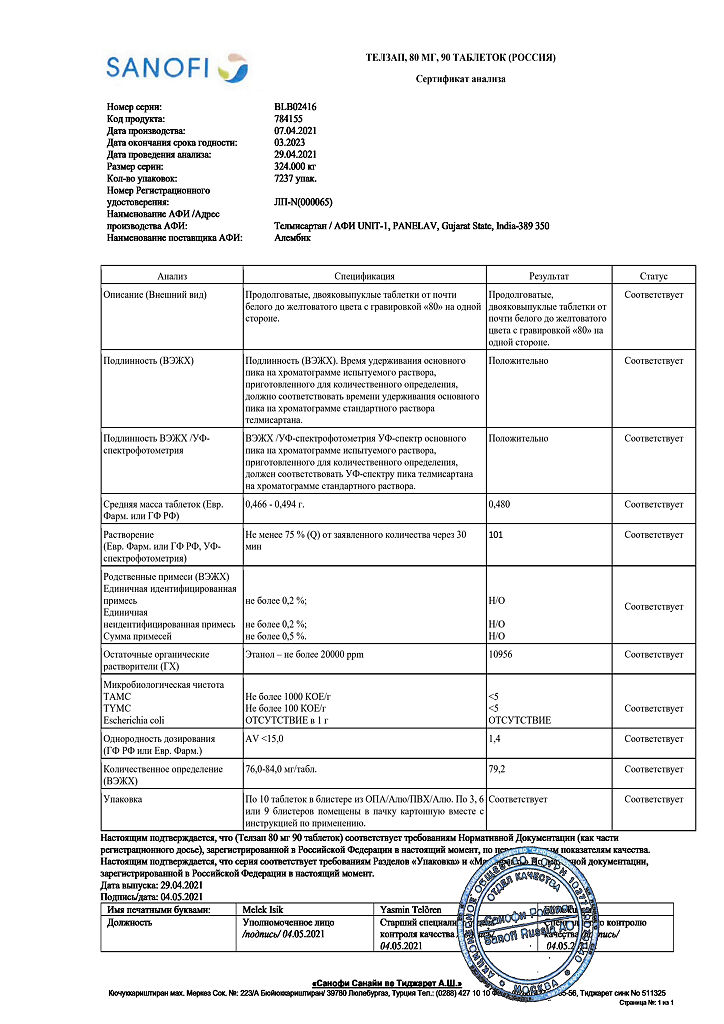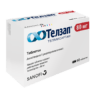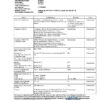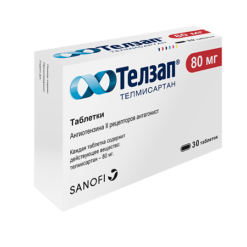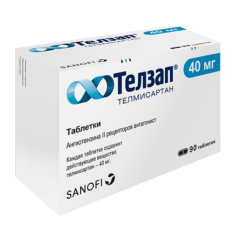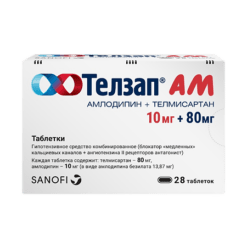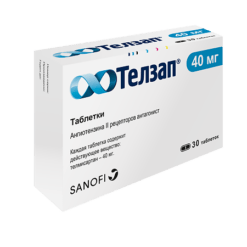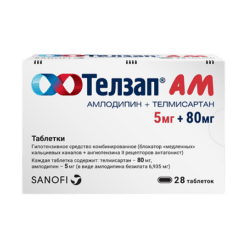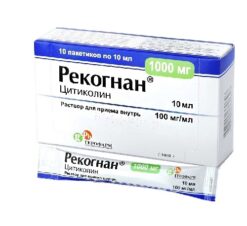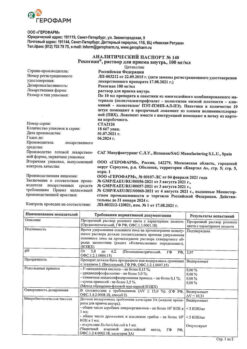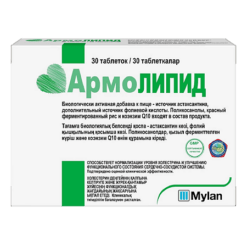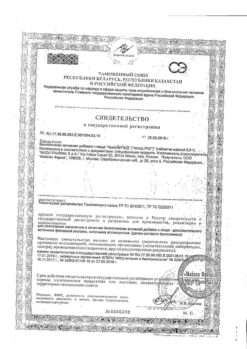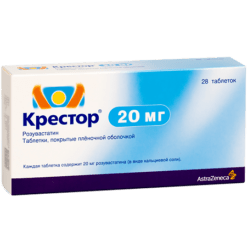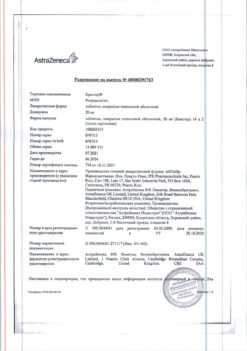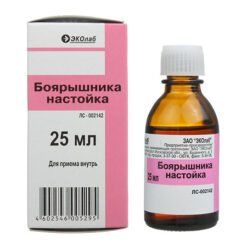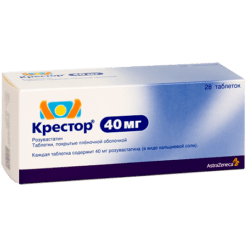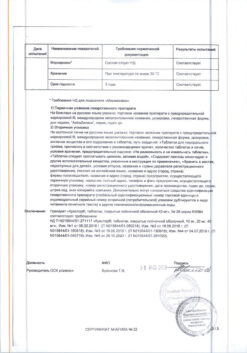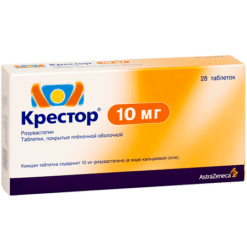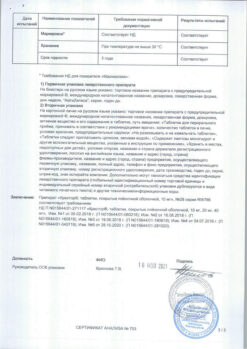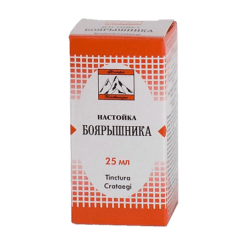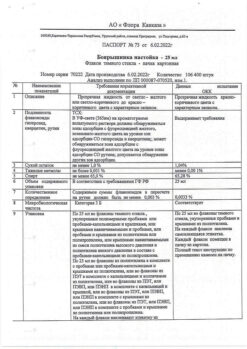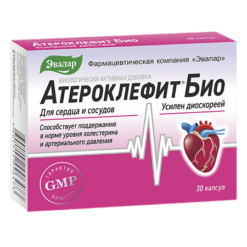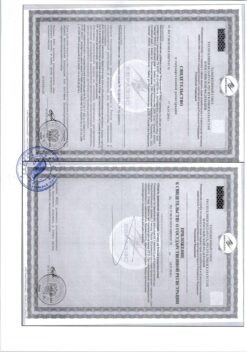No products in the cart.
Telzap, tablets 80 mg 90 pcs
€31.74 €26.45
Description
Hypertension (high blood pressure)
– essential hypertension;
– reduction in mortality and incidence of cardiovascular disease in adult patients with cardiovascular disease of atherothrombotic genesis (CHD, stroke or peripheral artery lesions in the history) and with type 2 diabetes with target organ damage.
Indications
Indications
— essential hypertension;
– reduction in mortality and incidence of cardiovascular diseases in adult patients with cardiovascular diseases of atherothrombotic origin (coronary artery disease, stroke or a history of peripheral arterial disease) and with type 2 diabetes mellitus with target organ damage.
Pharmacological effect
Pharmacological effect
Antihypertensive, blocking ATII receptors.
Special instructions
Special instructions
Liver dysfunction
The use of Telzap® is contraindicated in patients with cholestasis, biliary obstruction or severe liver dysfunction (Child-Pugh class C), since telmisartan is mainly excreted in the bile. It is assumed that in such patients the hepatic clearance of telmisartan is reduced. In patients with mild or moderate liver dysfunction (Child-Pugh class A and B), Telzap® should be used with caution.
Renovascular hypertension
When treated with drugs that act on the RAAS, the risk of severe arterial hypotension and renal failure increases in patients with bilateral renal artery stenosis or arterial stenosis of a single functioning kidney.
Renal dysfunction and kidney transplantation
When using Telzap® in patients with impaired renal function, periodic monitoring of potassium and creatinine levels in the blood plasma is recommended. There is no clinical experience with the use of Telzap® in patients who have recently undergone kidney transplantation.
Decrease in BCC
Symptomatic arterial hypotension, especially after the first dose of Telzap®, may occur in patients with low blood volume and/or sodium content in the blood plasma due to previous treatment with diuretics, restriction of salt intake, diarrhea or vomiting. Such conditions (fluid and/or sodium deficiency) should be eliminated before starting Telzap®.
Double blockade of the RAAS
Concomitant use of telmisartan with aliskiren is contraindicated in patients with diabetes mellitus or renal failure (GFR less than 60 ml/min/1.73 m2 body surface area).
The simultaneous use of telmisartan and ACE inhibitors is contraindicated in patients with diabetic nephropathy.
As a result of inhibition of the RAAS, arterial hypotension, syncope, hyperkalemia and impaired renal function (including acute renal failure) have been observed in predisposed patients, especially when combined with several drugs that also act on this system. Therefore, double blockade of the RAAS (for example, while taking telmisartan with other RAAS antagonists) is not recommended.
In cases where vascular tone and renal function depend primarily on the activity of the RAAS (for example, in patients with chronic heart failure or kidney disease, including renal artery stenosis or stenosis of the artery of a single kidney), the administration of drugs that affect this system may be accompanied by the development of acute arterial hypotension, hyperazotemia, oliguria, and in rare cases, acute renal failure.
Primary hyperaldosteronism
In patients with primary hyperaldosteronism, treatment with antihypertensive drugs that act by inhibiting the RAAS is usually ineffective. In this regard, the use of Telzap® is not recommended.
Stenosis of the aortic and mitral valves, hypertrophic obstructive cardiomyopathy
As with other vasodilators, patients with aortic or mitral stenosis, as well as hypertrophic obstructive cardiomyopathy, should be especially careful when using Telzap®.
Patients with diabetes mellitus receiving insulin or oral hypoglycemic agents
During treatment with Telzap®, hypoglycemia may occur in such patients. Glycemic control should be strengthened, because It may be necessary to adjust the dose of insulin or hypoglycemic agent.
Hyperkalemia
The use of drugs acting on the RAAS can cause hyperkalemia. In elderly patients, patients with renal failure or diabetes mellitus, patients taking medications that increase plasma potassium levels, and/or patients with underlying medical conditions, hyperkalemia can be fatal.
When deciding on the concomitant use of drugs acting on the RAAS, it is necessary to assess the risk-benefit ratio. The main risk factors for hyperkalemia that should be considered are:
– diabetes mellitus, renal failure, age (patients over 70 years old);
– combination with one or more drugs acting on the RAAS and/or potassium-containing nutritional supplements. Drugs or therapeutic classes of drugs that may cause hyperkalemia include potassium-containing salt substitutes, potassium-sparing diuretics, ACE inhibitors, angiotensin II receptor antagonists, NSAIDs (including selective COX-2 inhibitors), heparin, immunosuppressants (cyclosporine or tacrolimus) and trimethoprim;
– intercurrent diseases, especially dehydration, acute heart failure, metabolic acidosis, renal dysfunction, cytolysis syndrome (for example, acute limb ischemia, rhabdomyolysis, major trauma).
Patients at risk are advised to carefully monitor plasma potassium levels.
Sorbitol
Telzap® contains sorbitol (E420). Patients with rare hereditary fructose intolerance should not take the drug.
Ethnic differences
As noted for ACE inhibitors, telmisartan and other angiotensin II receptor antagonists appear to be less effective in lowering blood pressure in black patients than in other races, possibly due to a greater predisposition to decreased renin activity in these patient populations.
Other
As with the use of other antihypertensive drugs, an excessive decrease in blood pressure in patients with ischemic cardiomyopathy or coronary artery disease can lead to the development of myocardial infarction or stroke.
Impact on the ability to drive vehicles and operate machinery
No special clinical studies have been conducted to study the effect of the drug on the ability to drive a car or use machinery. When driving a car and working with mechanisms that require increased concentration, you should be careful, because During the use of Telzap®, dizziness and drowsiness may rarely occur.
Active ingredient
Active ingredient
Telmisartan
Composition
Composition
1 tab. – telmisartan 80 mg.
Pregnancy
Pregnancy
Currently, there is no reliable information on the safety of telmisartan in pregnant women. In animal studies, reproductive toxicity of the drug was revealed.
Contraindications
Contraindications
— obstructive diseases of the biliary tract;
– severe liver dysfunction (class C according to the Child-Pugh classification);
– combined use with aliskiren in patients with diabetes mellitus or severe renal impairment (GFR less than 60 ml/min/1.73 m2 body surface area);
– simultaneous use with ACE inhibitors in patients with diabetic nephropathy;
– hereditary fructose intolerance (due to the presence of sorbitol in the drug);
– pregnancy;
– period of breastfeeding;
– age under 18 years (efficacy and safety have not been established);
– hypersensitivity to the active substance or any excipients of the drug.
The drug should be prescribed with caution in cases of bilateral renal artery stenosis or stenosis of the artery of a single functioning kidney; renal dysfunction; mild and moderate liver dysfunction; a decrease in blood volume due to previous use of diuretics, limiting the consumption of table salt, diarrhea or vomiting; hyponatremia; hyperkalemia; condition after kidney transplantation (no experience of use); severe chronic heart failure; stenosis of the aortic and mitral valve; hypertrophic obstructive cardiomyopathy; primary hyperaldosteronism (efficacy and safety have not been established); black patients.
Side Effects
Side Effects
According to WHO, undesirable effects are classified according to the frequency of their development as follows: very often (≥1/10), often (from ≥1/100 to <1/10), infrequently (from ≥1/1000 to <1/100), rarely (from ≥1/10,000 to <1/1000), very rarely (<1/10,000); frequency unknown - based on available data, it was not possible to determine the frequency of occurrence.
Within each group, according to frequency of occurrence, adverse reactions are presented in descending order of severity.
Infectious and parasitic diseases: uncommon – urinary tract infections, including cystitis, upper respiratory tract infections, including pharyngitis and sinusitis; rarely – sepsis, incl. with fatal outcome.
From the hematopoietic system: infrequently – anemia; rarely – eosinophilia, thrombocytopenia.
From the immune system: rarely – anaphylactic reaction, hypersensitivity.
From the side of metabolism: infrequently – hyperkalemia; rarely – hypoglycemia (in patients with diabetes).
Mental disorders: infrequently – insomnia, depression; rarely – anxiety.
From the nervous system: infrequently – fainting; rarely – drowsiness.
From the organ of vision: rarely – visual disturbances.
From the organ of hearing and labyrinthine disorders: infrequently – vertigo.
From the cardiovascular system: infrequently – bradycardia, marked decrease in blood pressure, orthostatic hypotension; rarely – tachycardia.
From the respiratory system: infrequently – shortness of breath, cough; very rarely – interstitial lung disease.
From the gastrointestinal tract: infrequently – abdominal pain, diarrhea, dyspepsia, flatulence, vomiting; rarely – dry mouth, discomfort in the stomach, impaired taste.
From the liver and biliary tract: rarely – liver dysfunction/liver damage.
From the skin and subcutaneous tissues: infrequently – itching, hyperhidrosis, rash; rarely – angioedema (also fatal), eczema, erythema, urticaria, drug rash, toxic skin rash.
From the musculoskeletal system: infrequently – sciatica, muscle spasms, myalgia; rarely – arthralgia, pain in the extremities, tendinitis-like syndrome.
From the urinary system: rarely – impaired renal function, including acute renal failure.
From laboratory and instrumental studies: infrequently – increased concentration of creatinine in blood plasma; rarely – a decrease in hemoglobin content, an increase in uric acid in the blood plasma, an increase in the activity of liver enzymes and CPK.
Other: infrequently – chest pain, asthenia; rarely – influenza-like syndrome.
Interaction
Interaction
Double blockade of the RAAS
Concomitant use of telmisartan with aliskiren is contraindicated in patients with diabetes mellitus or renal failure (GFR less than 60 ml/min/1.73 m2 body surface area) and is not recommended in other patients.
The simultaneous use of telmisartan and ACE inhibitors is contraindicated in patients with diabetic nephropathy.
Data from clinical studies have shown that dual blockade of the RAAS due to the combined use of ACE inhibitors, angiotensin II receptor antagonists or aliskiren is associated with an increased incidence of adverse events such as hypotension, hyperkalemia and renal dysfunction (including acute renal failure) compared with the use of only one drug acting on the RAAS.
Hyperkalemia
The risk of developing hyperkalemia may increase when used concomitantly with other drugs that can cause hyperkalemia (potassium-containing dietary supplements and salt substitutes containing potassium, potassium-sparing diuretics (for example, spironolactone, eplerenone, triamterene or amiloride), NSAIDs (including selective COX-2 inhibitors), heparin, immunosuppressants (cyclosporine or tacrolimus) and trimethoprim). If necessary, against the background of documented hypokalemia, the combined use of drugs should be carried out with caution and the potassium content in the blood plasma should be regularly monitored.
Digoxin
When telmisartan was co-administered with digoxin, an average increase in plasma digoxin Cmax by 49% and Cmin by 20% was noted. At the beginning of treatment, when selecting a dose and stopping treatment with telmisartan, the concentration of digoxin in the blood plasma should be carefully monitored to maintain it within the therapeutic range.
Potassium-sparing diuretics or potassium supplements
Angiotensin II receptor antagonists, such as telmisartan, reduce diuretic-induced potassium loss. Potassium-sparing diuretics (eg, spironolactone, eplerenone, triamterene, or amiloride), potassium-containing dietary supplements, or salt substitutes may lead to significant increases in plasma potassium levels. If concomitant use is indicated because hypokalemia is documented, they should be used with caution and in conjunction with regular monitoring of plasma potassium levels.
Lithium preparations
When lithium preparations were used together with ACE inhibitors and angiotensin II receptor antagonists, including telmisartan, a reversible increase in the concentration of lithium in the blood plasma and its toxic effect occurred. If it is necessary to use this combination of drugs, it is recommended to carefully monitor lithium concentrations in the blood plasma.
NSAIDs
NSAIDs (i.e., acetylsalicylic acid at doses used for anti-inflammatory treatment, COX-2 inhibitors and non-selective NSAIDs) may reduce the antihypertensive effect of angiotensin II receptor antagonists. In some patients with impaired renal function (eg, dehydrated patients, elderly patients with impaired renal function), concomitant use of angiotensin II receptor antagonists and drugs that inhibit COX-2 may lead to a further deterioration of renal function, including the development of acute renal failure, which is usually reversible. Therefore, the combined use of drugs should be done with caution, especially in elderly patients. Adequate fluid intake should be ensured and renal function should be monitored at the start of co-administration and periodically thereafter.
Diuretics (thiazide or loop)
Previous treatment with high-dose diuretics such as furosemide (loop diuretic) and hydrochlorothiazide (thiazide diuretic) may lead to hypovolemia and the risk of hypotension when starting treatment with telmisartan.
Other antihypertensive drugs
The effect of telmisartan may be enhanced by concomitant use of other antihypertensive drugs.
Based on the pharmacological properties of baclofen and amifostine, it can be assumed that they will enhance the therapeutic effect of all antihypertensive drugs, including telmisartan. In addition, orthostatic hypotension may be exacerbated by the use of ethanol, barbiturates, narcotics, or antidepressants.
Corticosteroids (for systemic use)
Corticosteroids weaken the effect of telmisartan.
Overdose
Overdose
Symptoms: the most pronounced manifestations of overdose were a pronounced decrease in blood pressure and tachycardia; Bradycardia, dizziness, increased serum creatinine concentrations, and acute renal failure have also been reported.
Treatment: Patients should be carefully monitored and treated symptomatically as well as supportively. The treatment approach depends on the time elapsed after taking the drug and the severity of symptoms. Recommended measures include inducing vomiting and/or gastric lavage; it is advisable to take activated charcoal.
Plasma electrolytes and creatinine levels should be regularly monitored. If blood pressure decreases excessively, the patient should take a horizontal position with his legs elevated, and it is necessary to quickly replenish the blood volume and the lack of electrolytes. Telmisartan is not eliminated by hemodialysis.
Recommendations for use
Recommendations for use
The drug is taken orally, 1 time/day, regardless of food intake; The tablets should be taken with liquid.
Arterial hypertension
The initial recommended dose of Telzap® is 40 mg (1 tablet) 1 time/day. In some patients, taking the drug at a dose of 20 mg/day may be effective. A 20 mg dose can be obtained by splitting a 40 mg tablet in half according to the score. In cases where the therapeutic effect is not achieved, the recommended dose of Telzap® can be increased to a maximum of 80 mg 1 time / day.
Alternatively, Telzap can be taken in combination with thiazide diuretics, such as hydrochlorothiazide, which have additive antihypertensive effects when used together. When deciding whether to increase the dose, it should be taken into account that the maximum antihypertensive effect is usually achieved within 4-8 weeks after the start of treatment.
Reduced mortality and incidence of cardiovascular diseases
The recommended dose of Telzap® is 80 mg 1 time/day. During the initial period of treatment, monitoring of blood pressure levels is recommended; adjustment of antihypertensive therapy may be required.
Experience with the use of telmisartan in patients with severe renal impairment or patients on hemodialysis is limited. A lower initial dose of 20 mg/day is recommended for these patients. For patients with mild to moderate renal impairment, no dose adjustment is required.
Concomitant use of Telzap® with aliskiren is contraindicated in patients with renal failure (GFR less than 60 ml/min/1.73 m2 body surface area).
The simultaneous use of Telzap® with ACE inhibitors is contraindicated in patients with diabetic nephropathy.
For patients with mild to moderate hepatic impairment (Class A and B according to the Child-Pugh classification), the drug should be prescribed with caution; the dose should not exceed 40 mg 1 time / day. Telzap® is contraindicated in patients with severe liver failure (class C according to the Child-Pugh classification).
In elderly patients, no dose adjustment is required.
The use of Telzap® in children and adolescents under 18 years of age is contraindicated due to the lack of data on safety and effectiveness.
Storage conditions
Storage conditions
The drug should be stored out of the reach of children at a temperature not exceeding 25°C.
Shelf life
Shelf life
2 years. Do not use after the expiration date stated on the package.
Manufacturer
Manufacturer
Sanofi Ilac Sanayi ve Ticaret A.Ş., Türkiye
Additional information
| Shelf life | 2 years. Do not use after the expiration date stated on the package. |
|---|---|
| Conditions of storage | The drug should be kept out of reach of children at a temperature not exceeding 25 ° C. |
| Manufacturer | Sanofi Ilac Sanayi ve Ticaret A.Ş., Turkey |
| Medication form | pills |
| Brand | Sanofi Ilac Sanayi ve Ticaret A.Ş. |
Other forms…
Related products
Buy Telzap, tablets 80 mg 90 pcs with delivery to USA, UK, Europe and over 120 other countries.

